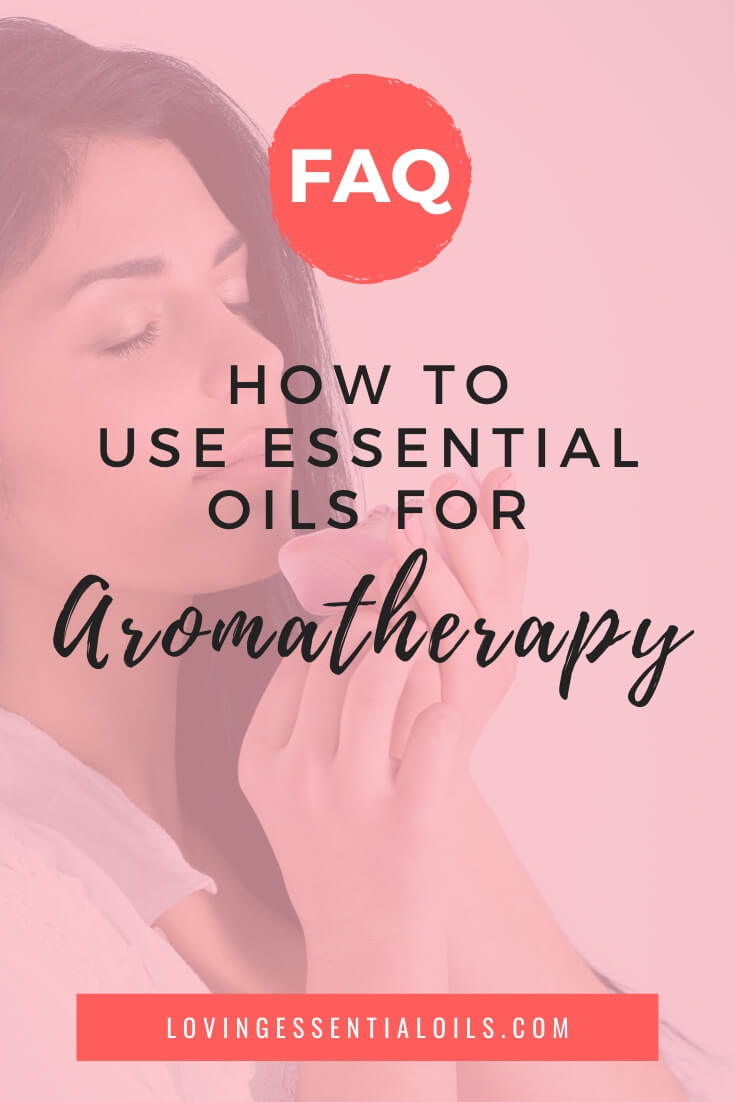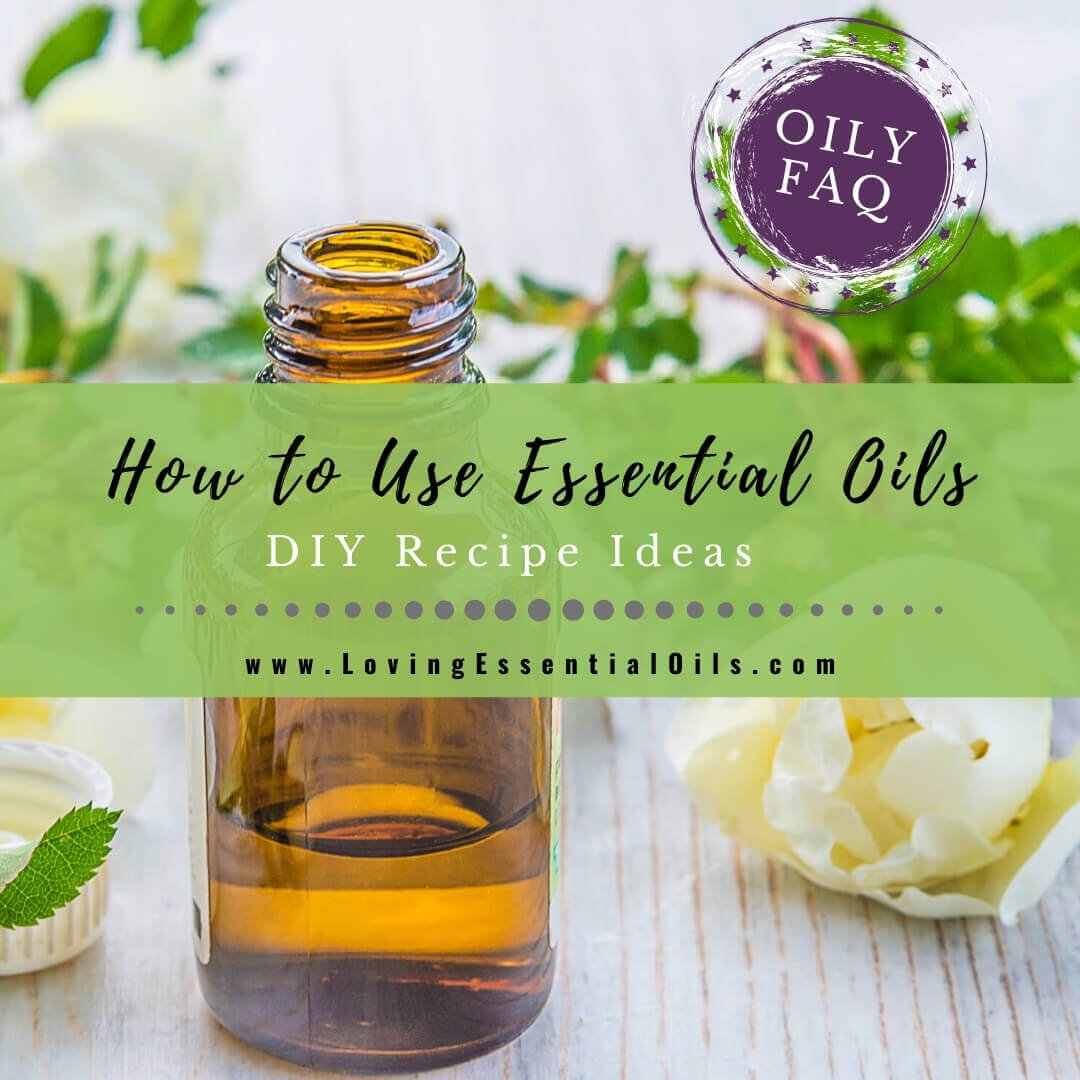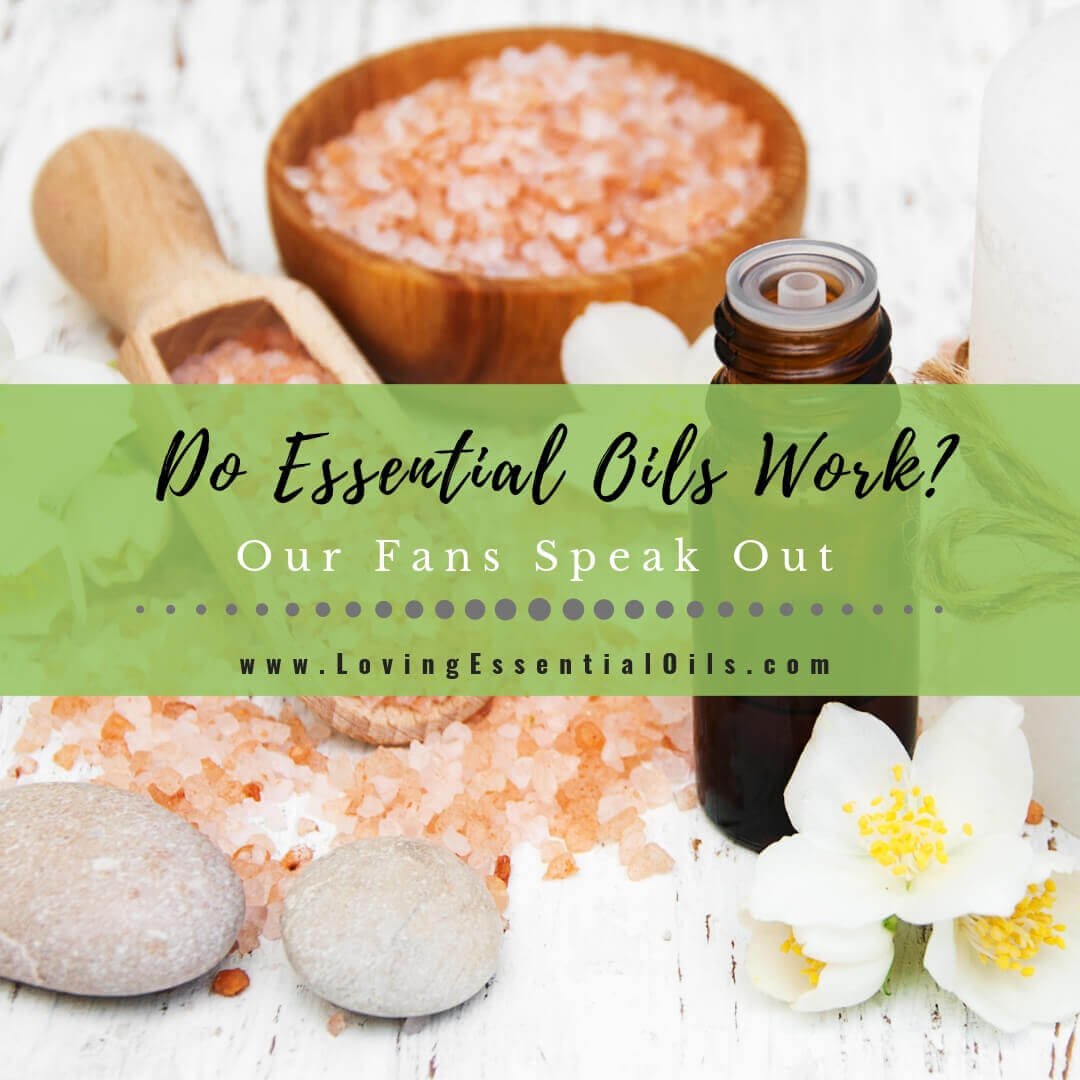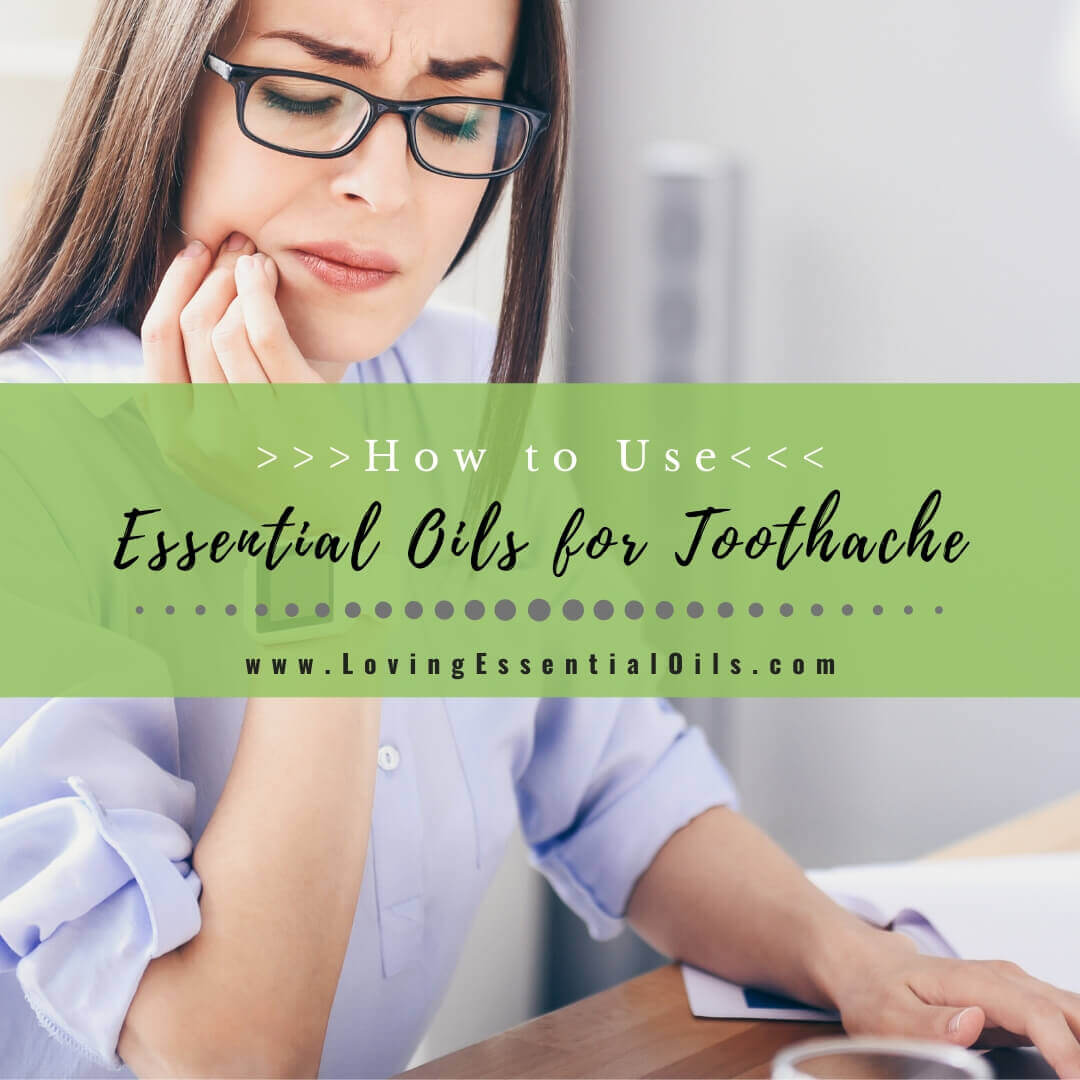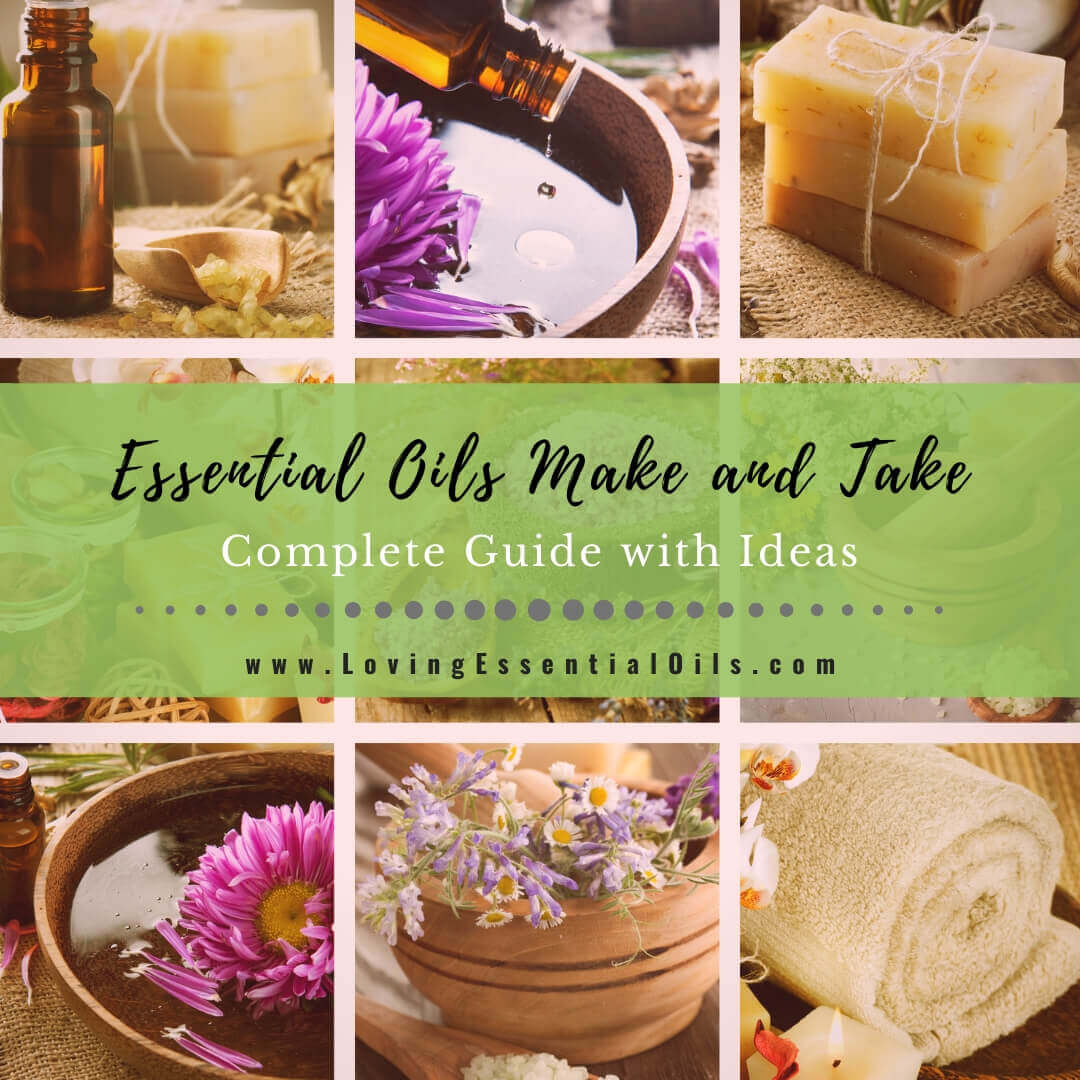Aromatherapy is a holistic healing treatment that uses natural plant extracts, known as essential oils, to improve physical and mental well-being. It works by stimulating smell receptors in the nose which then relay messages to the limbic system in the brain.
There are several ways in which essential oils can be used to help relieve pain, improve mood, soothe stress, and assist with many more ailments.
If you are new to oils or haven't used them much, read on to learn more about how to use essential oils for aromatherapy and natural wellness.
Using Essential Oils for Aromatherapy
Plant oils have been used since ancient times for a variety of health and wellness concerns. What is beautiful about essential oils is that they come from the leaves, flowers, stems, roots, bark, and other plant parts.
If you have smelled the scent of an orange peel or the petals of a rose, you've experienced aromatherapy.
Here is a quick look at how some of the most popular aromatherapy oils can assist your well-being:
- Try tea tree oil to clear blemishes and cleanse the skin.
- Lemongrass oil is a good choice when it comes to combating odors.
- Diffuse clove oil to support a healthy immune system or for a toothache.
- Trouble sleeping? Lavender oil, cedarwood, and vetiver are all wonderful options.
- Try patchouli oil or sandalwood oil during yoga for a grounding experience.
- Uplift your spirits with bergamot and sweet orange essential oil.
- Energize your day with peppermint or spearmint oil.
How to Use Essential Oils on the Skin (Topical Uses)
With the nearly countless ways to use essential oils on the skin, I want to share some of the most common ways to use essential oils topically. To apply essential oils to skin you will need a carrier oil to mix them up with first.
This is the best method to get the full benefits of topical application. I like to use jojoba carrier oil as my general everyday oil for diluting. It has a long shelf life, no aroma, and is very nourishing to the skin. I also love that it is an affordable carrier oil that is widely available, here is my favorite one:
Here are some ways to obtain the benefits of using essential oils on the skin:
1. Neat Application
Wondering if you can apply oils directly to the skin? Neat application simply means undiluted, and it can be a hot button of discussion in the aromatherapy world. In most applications, it is best to dilute aromatherapy oils before applying them topically, as mentioned above.
In some instances, like inflammations caused by insect bites, burns or even scratches a drop of undiluted lavender oil can do wonders.
Learn more about the benefits of diluting, PLUS get the free dilution cheat sheets here.
2. Lotions, Creams, and Salves
When having pain, skin issues, or a problem in a specific area, it may be best to apply the essential oils to that location that is affected. This way the oils can soothe the area where they are needed. Dilution will still be required prior to application for essential oil safety.
For a quick and easy application, I like to have a bottle of unscented lotion available so I can put a squirt in my hand, add a drop of essential oil to it, and then apply it to my desired location. DIY Creams and salves for specific issues are also popular to make.
3. Massage Oil
Massage helps to relax the muscles and improve blood circulation in the body. Normally massage is done using vegetable oils while massaging the skin. An aromatherapy massage includes using essential oils in massage oil. This is a great way to reap the therapeutic benefits they offer.
When applying to the skin during massage sessions, the essential oils should be diluted in a carrier oil. Grapeseed oil and sweet almond oil are favorite choices. When applied during a massage, the oils will be absorbed into the bloodstream and cause relaxation effects to the mind and body. Try these Aromatherapy Massage Oil recipes, PLUS get the free guide here!
4. Chest Rub
Two favorite essential oil that helps to relieve chest problems caused by respiratory difficulties include peppermint and eucalyptus oil. To ease breathing aliments and open airways, try a chest rub to gain the healing benefits. They do actually work in this manner since the oils penetrate through the skin to the affected areas.
5. Roller Remedies
Roller bottles are a must-have essential oil supply for any serious aromatherapy user. They allow you to have your oils diluted and ready for use. Whether using for pain, tension, skin ailment, or natural perfume, roller recipes are simple to make and can be taken on the go. Try these Essential Oil Roller recipes, PLUS get the free guide here!
6. Hot or Cold Compress
Here's a way in which you can use a towel to apply the essential oil to an area of concern. You need to infuse the cloth with the essential oil and ensure that it is damp. Do this by adding a few drops of essential oils to hot or cold water in a bowl that can fit the towel.
The hot or cold compress is then wrung out and placed on the affected area of the body. The drops of essential oils used will depend on the intensity of the problem. The procedure should do repeatedly until the best result is achieved.
This application could be used as a first aid remedy when needed, learn more about using essential oils for first aid.
7. Foot Bath (or Hand Bath)
The feet and hands can be soothed and softened with an aromatherapy bath. Applying essential oils to these parts is very pampering. You may choose to use either a warm or cold bath, depending on your desired results and preferences. Here are some ideas:
- Got cold and stiff hands when you wake up? Try a warm hand bath with 1 teaspoon jojoba oil and 2 drops juniper essential oil to relieve aching joints.
- Are feet sore and overworked? Try a soothing lavender bath, just add 3 drops of lavender to a warm or cold foot bath with 1/4 cup Epsom salt.
- Is your body overheated? Try a cooling peppermint foot bath when overheated. Mix 1 teaspoon castile soap with 2 drops of peppermint. Add to a foot bath with cold water.
- Got Stinky Funk Feet? Mix 2 drops of tea tree oil and 1 drop of lemon oil with 1 teaspoon jojoba oil and 1/4 cup of Epsom salt, add to a warm foot bath.
I always like to follow a hand or foot bath with lotion. Try a tablespoon of unscented lotion and add 1-2 drops of desired essential oil to lock in moisture.
8. Mouthwash
There are some very good antibacterial essential oils that can be beneficial when used as a natural mouthwash. Peppermint oil and tea tree oil are popular choices.
- Try one drop in 1/4 cup of water and swirl to mix.
- Swish in the mouth for a short time (1-3 minutes).
- It is best not to swallow the mixture, be sure to spit it out after swishing.
- Some even like to do oil pulling with essential oils.

How to Inhale Essential Oils (Aromatic Uses)
Aromatically using essential oils simply means smelling the aromas. This can be done in a variety of ways. Even when using essential oils topically on the skin, you can gain aromatic benefits as well from breathing in the scent.
Inhaling essential oils can be as simple as opening a bottle of oil, holding to your nose, and taking a deep breath. If you want to do that throughout the day it is best to put a drop or two on a tissue instead so you don't have to keep opening the bottle up and exposing it to air (prolonged exposure to air can deteriorate your oils).
Here are some more ways to enjoy breathing in essential oils:
1. Direct Inhalation
You can inhale essential oils from the palms of your hands. Here is how to do it:
- Apply one drop of essential oil to the palm of a hand
- Rub palms together to spread the drop around
- Bring palms to face and take a deep breath in, repeat a few times
- Drop oil on a tissue if you want to avoid the oils on your hands
2. Diffusing Essential Oils
Diffusers are very popular in the aromatherapy space. This is another form of inhalation of essential oils, it is such a big topic and a favorite method to use essential oils every day.
You can diffuse a single essential oil, a premade blend, or mix up a blend for a specific issue. Diffuse to purify the air in the room or to inhale the essential oil into the respiratory system to enjoy many therapeutic benefits.
Read more about how to diffuse essential oil here, plus get a HUGE amount of diffuser blends and recipe ideas here.
3. Aromatherapy Inhaler
A personal inhaler is a great way to enjoy aromatherapy. It's like having a mini diffuser that you can take with you wherever you go. It is also a more discreet way to use essential oils when you are in a public space or when diffusing oils isn't an option.
Essential oil inhalers are used for many similar things that diffusers are good for:
- Sleep
- Respiratory Support
- Energy
- Stress/anxiety
You can learn more PLUS get DIY Inhaler Recipes here.
4. Aromatherapy Jewelry
Essential oil diffusing jewelry has become trendy in aromatherapy. There is quite a variety of jewelry to choose from, check out all the options that Amazon has to offer, just click on the link:
- Diffuser Necklaces
- Diffuser Bracelets
- Diffuser Earrings
You can even get a car clip diffuser to enjoy aromatherapy on the road in your vehicle. Not quite jewelry, but it is a very useful accessory. Learn more about diffusing essential oils in the car.
5. Steam Inhalation
This is yet another way to use essential oils, especially when suffering from a cough, sore throat, cold or flu. Here is how to make a steam inhalation:
- Pour about 2 cups of hot water into a heat-safe bowl.
- Add 1-3 drops of essential oils to a bowl of hot water.
- Bring face near steam at a comfortable level. Don't get too close, just close enough to feel the steam when inhaled.
- Slowly breathe the steam and oils in. Keep eyes closed to avoid irritation.

6. Scented Pillow
Before going to sleep, you may want to try to put essential oils inside the pillow by either placing it on a tissue or cotton pad and then tucking into a pillowcase. The oil will then diffuse to your nose when you are asleep, helping you sleep better and longer.
It is good to take precautions to ensure that the essential oil does not enter into the eyes because it can be very irritating, that is why I like to place it inside the lower portion of my pillowcase so it is closer to my nose and not my eyes.
Using Essential Oils in Bath and Shower
When adding essential oils to your bathing routine, you are usually accomplishing both topical and aromatic use. When using essential oil soaps, scrubs, and hair remedies you will gain the benefits fro these products. While using these products, the steam from the bath and shower will disperse the essential oil aromas.
Relaxing Bath
Who doesn't love a relaxing bath? Essential oils can be added to your bathing routine to help you relax. Add in a scoop of Epsom salt for even more soothing benefits. You will still need to dilute your oils with carrier oils to avoid skin irritation and allow them to disperse better in the water otherwise they will float on top of the water.
Aromatherapy Shower
Another simple way I like to add a quick aromatherapy shower to my day is by adding a few drops of essential oil on the shower floor just before I step in. Once in the shower, deeply inhale the scent that it creates. Try spearmint or wintergreen in the morning when you need to wake up. Try roman chamomile or sweet marjoram before bedtime.
DIY Essential Oil Recipes to Try
- Frankincense Bath Salt
- Cardamom Oil Soap
- Bath Oil Recipes
- Body Oil
- Custom Facial Oil
- Essential Oil Soap
Aromatherapy and Essential Oil Definition and Benefits
Aromatherapy, defined as the use of aromatic oils to balance emotions, has been practiced for centuries by various cultures around the world. Ancient Egyptians, Romans, and Arabs used essential oils for their therapeutic properties.
The term ‘Aromatherapy’ was coined by Rene Maurice Gattefosse, who discovered the healing benefits of Lavender oil. Today, Aromatherapy is widely recognized as a complementary therapy, and scientific evidence supports its effectiveness in various applications.
Aromatherapy offers various benefits, including the restoration of harmony to overstimulated bodies, the triggering of positive memories and mood, and the improvement of psychological well-being through the influence of pleasant scents.
Scents connect us to nature and can induce positive dreams. Research has shown that pleasant smells increase productivity, performance, and prosocial behavior, while bad smells impair judgment and decrease tolerance for frustration.
Aromatherapy can be used to improve psychological well-being, as mood influences thinking, which often leads to observable behavior.
With its long history and scientific evidence, Aromatherapy is a powerful tool for enhancing our physical and mental health.
Essential Oil Safety and Product Information
By following these precautions and product recommendations, aromatherapy can be a safe and beneficial addition to a holistic health regimen.
- Essential oils are highly concentrated and must be diluted with carrier oils before use.
- Use essential oils topically and aromatically only. It is best to avoid internal use of essential oils unless under the care and direction of a health practitioner or doctor.
- Some oils may cause skin irritation or allergic reactions, so it is best to perform a patch test before using any new product.
- It is also important to keep essential oils away from children and pets and avoid contact with eyes or mucous membranes.
- When choosing aromatherapy products, it is recommended to purchase from reputable brands that provide pure, high-quality oils.
- Proper storage is also important to maintain the quality and potency of essential oils. They should be kept in a cool, dark place and away from direct sunlight or heat.
Answers to Frequently Asked Questions About Aromatherapy
Is aromatherapy safe to use?
Yes, aromatherapy is generally safe to use. When used properly, it can help relax the body, reduce stress and anxiety, soothe headaches and improve sleep quality.
Studies have also found that certain essential oils may provide benefits such as relieving inflammation, fighting bacteria and viruses and even improving overall health.
With all these potential benefits, proper caution must be taken when using aromatherapy. It’s important to dilute some essential oils before using them on your skin and to use only high quality, pure essential oils for best results.
What types of essential oils are commonly used in aromatherapy?
When it comes to essential oils commonly used in aromatherapy, lavender is one of the most popular choices. Other essential oils often used in aromatherapy include eucalyptus, peppermint, sandalwood, lemon, tea tree, frankincense, clary sage, rosemary and cedarwood.
Lavender essential oil has a natural calming and soothing aroma, which can benefit relaxation and reduce stress levels. Additionally, lavender oil is known to have anti-inflammatory, antiseptic, and antiviral properties. These properties making it ideal for use in massage therapy and skincare.
Here are more essential oils to try:
- Eucalyptus oil is antibacterial and helps with respiratory issues
- Peppermint oil can be used as an inhalant to help with nausea and headaches
- Sandalwood increases focus and clarity
- Lemon oil has uplifting effects and helps reduce mental fatigue
- Tea tree oil supports the immune system
- Frankincense aids in relaxation
- Clary sage helps with digestion
- Rosemary lifts spirits
- Cedarwood is calming and grounding
Ultimately, aromatherapy involves combining different essential oils that best suit the needs of the individual seeking natural healing. It is important to do research on the properties of each oil to ensure you are using them safely for the desired effect.
What are the health benefits of aromatherapy?
Aromatherapy offers a range of potential health benefits, from reducing stress and anxiety to improving sleep and enhancing mood. Aromatherapy can help to relax the mind, body, and spirit by releasing pleasant scents into the air through diffusers or direct inhalation.
- The health benefits come from volatile organic compounds (VOCs) in essential oils, which are absorbed into the body through olfactory receptors in the nose and other pathways.
- By inhaling these compounds, they travel directly to the limbic system of the brain where emotions are regulated, influencing our sense of wellbeing.
- The scent of certain essential oils has been associated with improved mental clarity and heightened brain function, while others may reduce inflammation and help manage chronic pain.
Additionally, many essential oils have antiseptic properties that can be used to purify the air, reduce odors, and protect against illness-causing bacteria and viruses.
Finally, aromatherapy can offer psychological benefits such as reduced anxiety, improved sleep quality and relaxation.
What are the emotional benefits of aromatherapy?
Aromatherapy is seen as an effective way to improve mood, relieve stress, and promote greater mental clarity. It has also been suggested that aromatherapy may be beneficial in assisting with depression and anxiety.
The scientific community is divided on the issue of its effectiveness due to the subjective nature of the research, but many healthcare professionals believe it can offer numerous mental health benefits when used as part of other treatments like counseling or cognitive behavioral therapy.
Future research should focus on exploring the physical health benefits of aromatherapy.
How long do the effects of aromatherapy last?
The long term impact of aromatherapy varies based on the frequency of use and the individual’s response to scent. While the effects may be immediate, consistent use can lead to lasting benefits in physical and mental health.
Share on Pinterest
